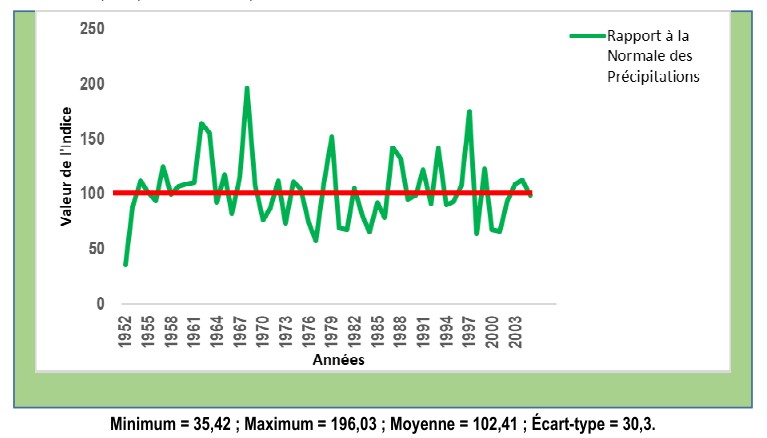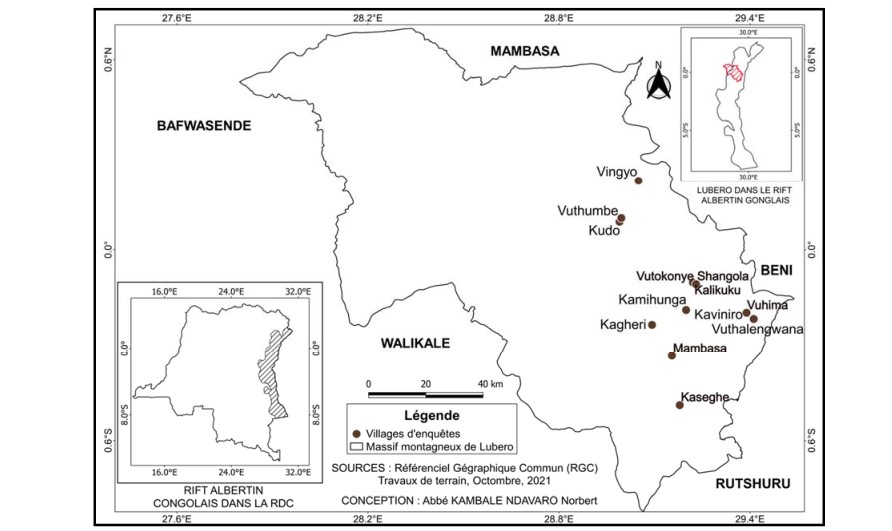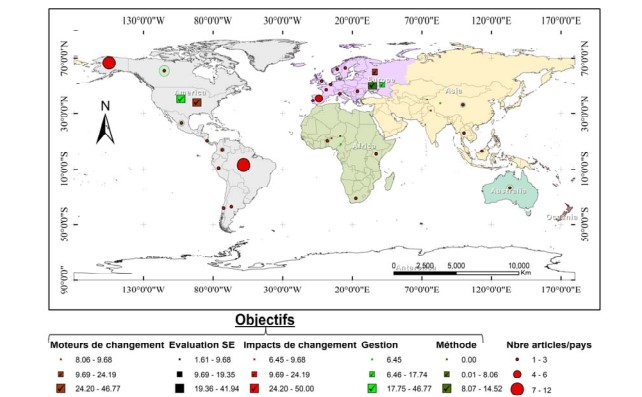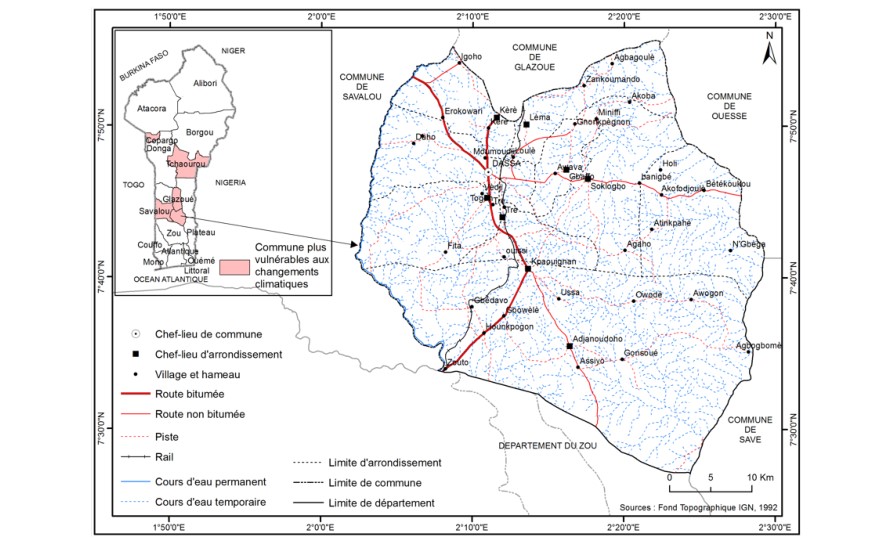Soybean transformation in Benin: Analysis of the Value Chain of Derived Products
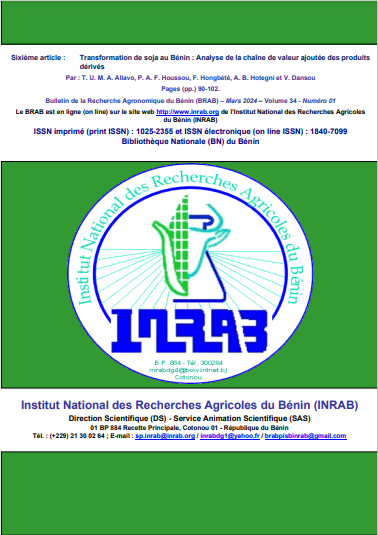
Soya (Glycine max) has become a booming raw material in Benin. Its derivatives are gaining in popularity and are increasingly integrated into Beninese dietary habits. The objective of the study was to analyze soybean value-added chains in Benin, and to identify high value-added products with a view to enhancing their value. Thus, a literature review was done on soybean processing useful to collect secondary data. Data was then collected from 146 people (58 processors and 88 consumers) in six departments of Benin (Borgou, Collines, Zou, Ouémé, Atlantique and Littoral). The information was collected individually from the stakeholders using data collection forms, and related to the socio-economic characteristics of the stakeholders interviewed, the mapping of stakeholders involved in the processing chain, the different soybean-derived products manufactured and marketed by the processors, the different technologies and equipment used, the critical points and major constraints linked to soybean processing, and the prospects for a better valorization of the soybean value chain in Benin. The results showed that soybean processing is an income-generating activity in Benin. It involves a number of operational players and facilitators who contribute to the production of finished products. A total of 29 soy-derived products were identified, reflecting the diversity of soy-derived products processed and consumed by the Beninese population. These products come from the processing of artisanal, semi-industrial and industrial. Among these products, cheese, soymilk, soymilk cookies, soymilk oil and soymilk flour stand out as products with high value-added potential. The main constraints identified by stakeholders were linked to raw material supply, processing and storage & preservation of by-products. Faced with these constraints, research and policymakers must invest in removing these bottlenecks to improve the quality of soy derivatives.
Les articles publiés par le Bulletin de la Recherche Agronomique du Bénin sont en libre accès. Ils sont gratuits pour tout le monde, immédiatement téléchargeables dès la publication et distribués sous la licence CC BY-NC-ND (https://creativecommons.org/licenses/by-nc-nd/4.0/).




